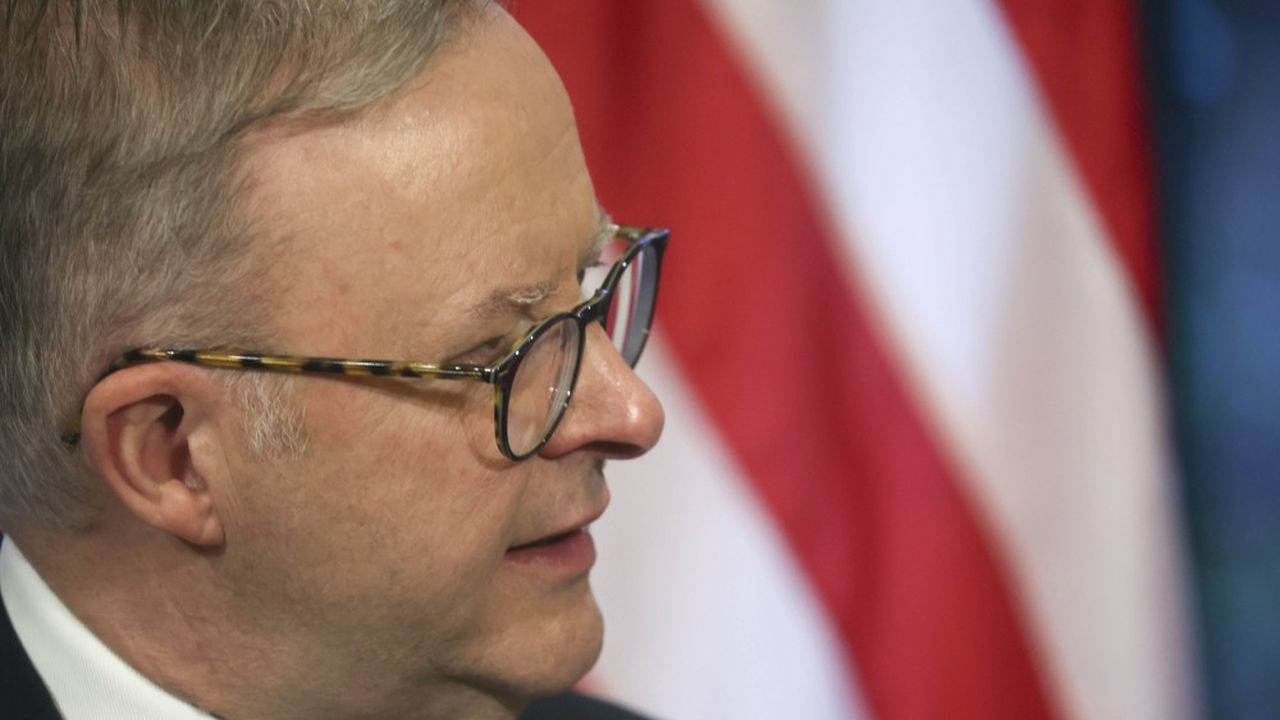
Defense: Australia’s submarines will severely affect its finances and diplomacy
Prime Minister Anthony Albanese described the investment made on behalf of Australian defense as “historic” alongside his British counterpart Rishi Sunak and US President Joe Biden on Monday in San Diego.
Canberra believes that financing its submarine strategy, which includes circulating American and British submarines in its waters, buying 3-5 American submarines and then building new SSN-AUKUS attack submarines by 2040, will eat up about 0.15% of its GDP and generate 20,000 jobs. . The total amount will reach 368 billion Australian dollars by 2055, or approximately 228.66 billion euros.
The shipyard should already remain in Adelaide, the capital of South Australia, where twelve French conventional submarines were to be built under an agreement that was broken with a bang in September 2021, during the surprise announcement of the Aukus alliance (about 555 million euros allocated) to the Naval Group in compensation).
Building nuclear submarines should create 4,000 to 5,500 direct jobs there, double what has been committed to assembling attack-class submarines, Australian Defense asserts.
Made in Australia
So the focus is on building being built in Australia with record investments in defence, skills (science, technology and internet), employment and infrastructure. The Ministry of Defense assures us that this is “the most transformative industrial project in the history of the country.”
Since Australia does not possess nuclear technology, whether it is civilian or military, it will have to make huge efforts in terms of training and employment, but also in finding solutions for nuclear waste management.
The strategy in this regard is more ambiguous, and this storage is only expected to happen in decades. “We’re taking advantage of large parts of the country where that’s possible. We’ve made it clear that this will happen in the defense area, both current and future,” said Defense Secretary Richard Marlis.
Canberra is also keen to stress its commitment to the Treaty on the Non-Proliferation of Nuclear Weapons and its desire to cooperate with the International Atomic Energy Agency.
controversial
Historical though it is, the trilateral nuclear program does not fail to generate controversy both at home and in the international arena. Without directly naming China, Labor leader Anthony Albanese said the plan reflected a shared determination of the three Anglo-Saxon nations to “act, in their own sovereign interest, away from coercion”. Beijing was quick to respond to the offer of the project in the Indo-Pacific region and, with Moscow at its wheel, denounced the “grave danger of nuclear proliferation”.
Australian Foreign Minister Penny Wong tried to ease tensions by emphasizing that “nobody wants escalation. Nobody wants to see miscalculation. “The region has the right to expect major powers to manage competition in a respectful and appropriate way,” urged the Malaysian national, who also plans to visit Many Pacific countries to inform them of the future programme.
New Zealand Prime Minister Chris Hepkins has already reiterated that nuclear submarines will not be allowed to sail in the territorial waters of his country, on the border with Australia.

“Organizer. Social media geek. General communicator. Bacon scholar. Proud pop culture trailblazer.”
